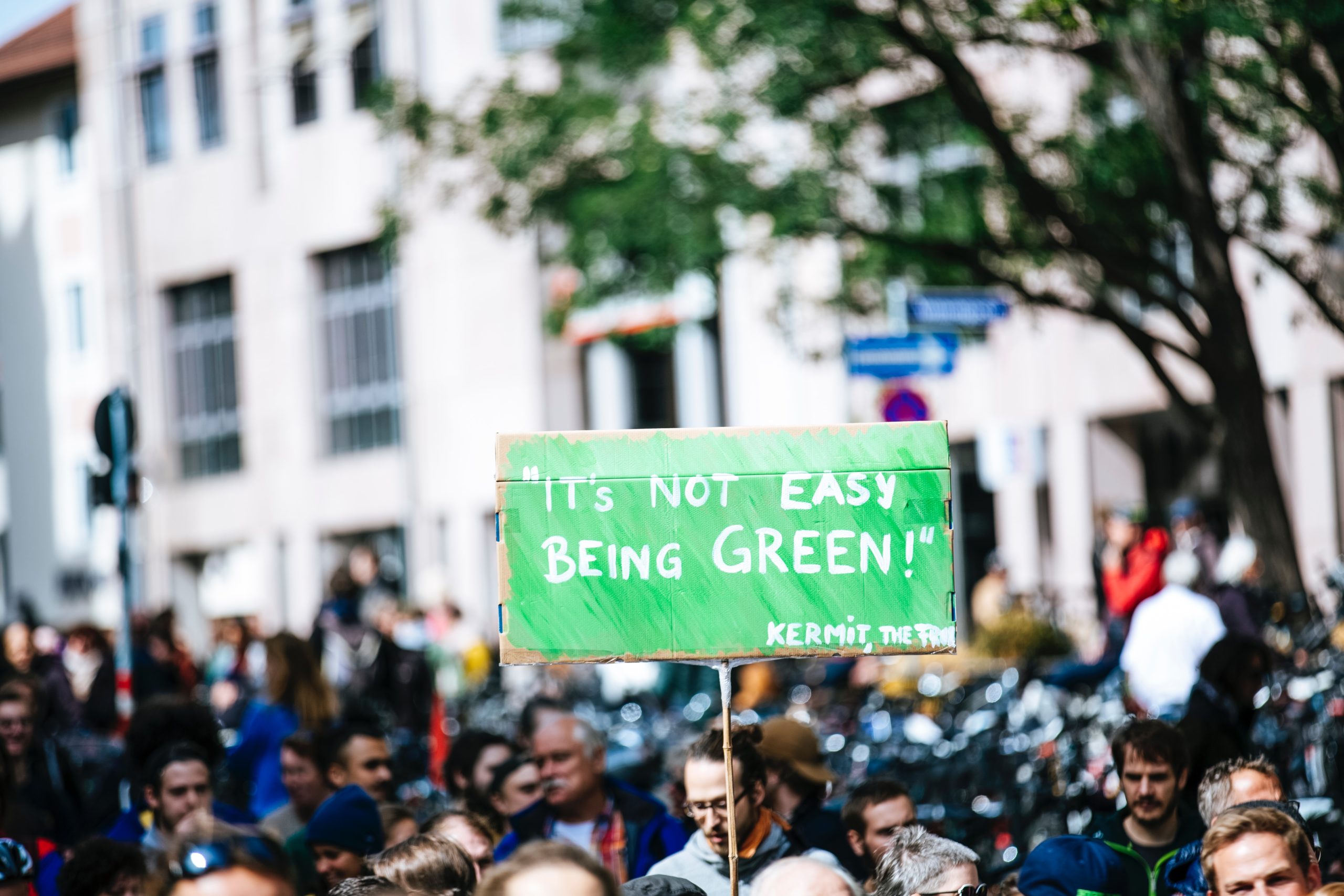COP26: Leaders agree on a global plan to boost green technology
Over 40 global leaders have confirmed they will work together to accelerate the transition and development of clean energy technologies by adopting worldwide standards and policies. The announcement was made at the climate summit COP26 in Glasgow earlier this month.
Five high-carbon intensity industries will be incorporated initially, including agriculture and electricity. The plans intend to encourage private investment into low-carbon technologies worldwide. There have been similar attempts to drive clean technology, but this announcement represents one of the most ambitious multinational agreements to date. Its supporters intend to ensure investors understand the value of incorporating green technology into global markets and the associated financial benefits of this industry shift.
Over time it’s anticipated that the measures will attract trillions of dollars of private finance to tackle global emissions. The five key sectors that will be the initial focus include steel, road transport, agriculture, hydrogen and electricity. Named the Glasgow Breakthroughs, the initiative gained recognition by Nick Mabey, a representative of climate think tank E3G. Mabey believes the plan has great potential to transform climate change measures from the early stages of negotiation into real economic scenarios. Mabey believes leading nations could agree on targets for manufacturing amounts of green steel i.e. steel developed with hydrogen or electricity as one example. This kind of transformative measure could be very impactful in so many markets.
The new plan was announced by UK Prime Minister Boris Johnson, along with representatives from the USA, China, India and the EU. The confirmed partners are said to represent over 70% of the global economy. A similar approach has been happening in the EU, where policymakers have gradually increased the efficiency standards for electrical goods, driving reduced emissions associated with these products.
More importantly, businesses looking to export goods or services into the EU must adhere to the new standards. It proves that higher standards in one particular region have the power to influence technology in another area. A similar process could be adopted and expanded with the Glasgow Breakthroughs plans.
The UK Prime Minister explained that by ensuring clean technology is more affordable, accessible and attractive, it naturally becomes the default option for polluting sectors. The Glasgow Breakthroughs represent an accelerator for green technology developing, reducing emissions, creating jobs and higher levels of prosperity.
Global leaders have pledged to discuss their annual progress in each sector. Annual reports will be produced by the rich nations think tank and the International Energy Agency (IEA). At the event, global leaders and senior businesses are launching the following measures:
–The Green Grids Initiative – connecting regions and communities to renewable energy sources and ensuring everyone has access to clean energy.
–AI4C – a new initiative delivered by the US and the UAE, with 30 additional countries focusing on accelerating sustainable agriculture development.
–The Breakthrough Energy Catalyst Programme – aimed at raising more than $30 billion of new investments and driving costs down for green hydrogen, direct air capture of CO2 and energy storage.
–The First Movers Coalition – the US managed group of 25 leading corporates dedicated to purchasing commitments in sectors such as steel, shipping, aviation and chemicals.
Government climate advisors continue to support new clean technology developments but confess there is also a necessity for behavioural changes, including promoting walking and cycling and reducing our dependence on meat and dairy.
Supporting developing nations accelerate green technology
Enabling developing nations to avoid fossil fuels and transition towards renewable energy is one of the biggest technology transfer challenges our world faces, as highlighted in COP26. To achieve net-zero targets developing nations cannot follow the same path taken by developed countries industrialising through high dependence on coal and transitioning to green at a much later date.
Johanna Lehne, senior advisor at European climate change organisation E3G explains that poorer nations need to be capable of jumping ahead in terms of development and shift straight into a greener economy. The Global Energy Alliance for People and Planet launched at COP26 explains that energy-poor nations only account for 24% of global emissions. If our reliance continues for economic development, this figure will rise closer to 80% by 2050, eliminating any of the gains of a greener transition in developed countries. Accelerating green technology in developing nations is, however, a significant challenge.
In many developed nations, renewable technologies like solar and offshore wind are now cost-effective compared to fossil fuels and pushing coal further out of the energy market. In less-developed regions, renewable energy hasn’t reached this stage of competitiveness or experienced similar reductions in costs.
Challenges with logistics and supply chains mean installation costs remain relatively high in developing nations. For example, the cost of lithium-ion batteries can be as much as four times higher in Africa compared to the western world.
These barriers have meant that up to now, coal remains the primary energy source for developing nations. The coal industry is an established and well-understood market, and until last year China provided countries with additional financial and technical support to construct new coal facilities relatively easily. In terms of renewable energy installation, it isn’t necessarily too technical but does require training for engineers and construction workers. The Alliance intends to support governments in creating the necessary policies to deliver the framework for renewable energy development.
This preparation will enable more suitable conditions for investors to focus on the renewable energy market. Advisors admit, however, that a significant sum of money is required to make the transition towards renewables.
The challenge of the green tech transition
The World Energy Outlook 2021 report by the IEA states that by 2030, the world will need to invest approximately $4 trillion every year into clean energy to reach net-zero by 2050. There is now a race to develop and lead green technologies by this date, and many major economies are focused on innovation and deployment, which can only be a positive for climate action.
There is, however, the added challenge of supporting developing nations with a transition that will ultimately impact millions of people. Dismantling a historical industry reliant on fossil fuels will inevitably affect many communities, particularly those relying on these activities for their income.
A mismanaged transition away from coal will threaten the livelihoods of millions of people. Fatih Birol, the executive director of the IEA, explains that with any significant change, there will be winners and losers, and the same applies to the necessary transition to green energy. Fortunately, the IEA predicts that more jobs will be created than lost transitioning to a green future, but this may be fragmented in terms of where the jobs are distributed.
There are many people in fossil-fuel producing areas who are rightly concerned. Some counties are implementing plans to compensate for these changes and retrain people that potentially lose their jobs through the energy transition. Birol emphasises that every nation that has announced a clean energy plan or new measures for hydrogen must create a similar strategy to support workers who are at risk of being left behind.
For the latest Agriculture Jobs, Carbon Capture and Storage Jobs, Carbon Jobs, Clean Tech Jobs, Climate Jobs, Climate Change Jobs, Climate Crisis Jobs, Climate Emergency Jobs, Electricity Jobs, Emissions Jobs, Energy Storage Jobs, Hydrogen Jobs, Low Carbon Jobs, Offshore Wind Jobs, Pollution Jobs, Renewable Energy Jobs, Solar Jobs, Sustainable Jobs, Sustainable Transport Jobs in the United Kingdom please visit – GreenJobs
For the latest Agriculture Jobs, Carbon Capture and Storage Jobs, Carbon Jobs, Clean Tech Jobs, Climate Jobs, Climate Change Jobs, Climate Crisis Jobs, Climate Emergency Jobs, Electricity Jobs, Emissions Jobs, Energy Storage Jobs, Hydrogen Jobs, Low Carbon Jobs, Offshore Wind Jobs, Pollution Jobs, Renewable Energy Jobs, Solar Jobs, Sustainable Jobs, Sustainable Transport Jobs in Ireland please visit – GreenJobs Ireland
LOOKING TO HIRE TALENTED CLIMATE CHANGE PROFESSIONALS?
We Can Help You To Find The Right Candidate & Save You Money.
For more information please contact us at – info@greenjobs.co.uk – quoting the following promotional code – GREENFUTURE2611


